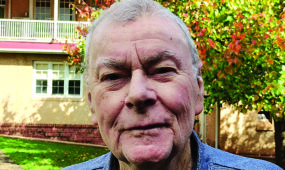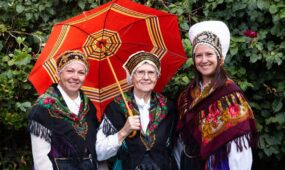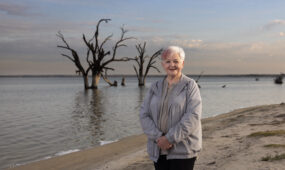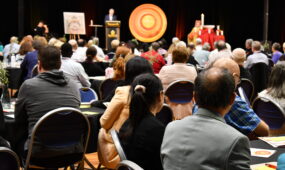Timor-Leste friendship strengthened
News
The close connection between Timor-Leste and Australia was evident last month when the Vicar General of the Dili Archdiocese, Fr Graciano Santos Barros, visited Adelaide.
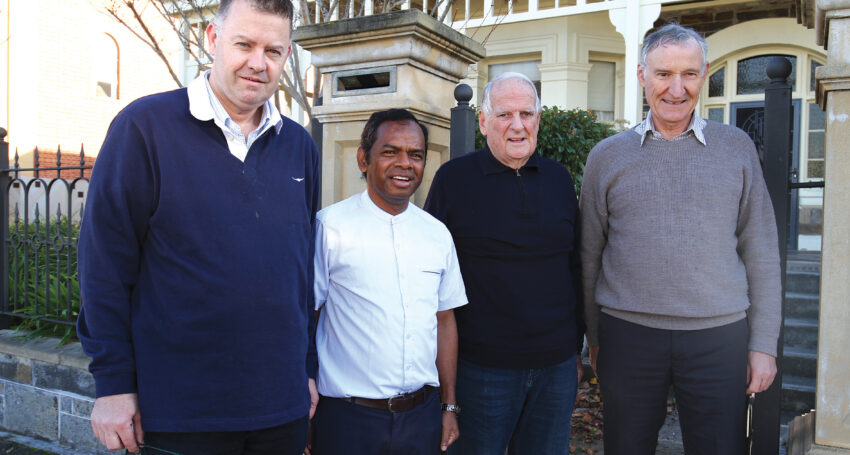
The 52-year-old canon lawyer was hosted by Glenelg parish priest Fr John Herd who has had a long association with the Timorese.
The visit provided an opportunity for Fr Graciano to personally thank local parishioners who donated more than $200,000 over the past two decades for seminarians in Timor-Leste.
The struggles of the small fledgling nation of 1.3 million people, of which 98 per cent are Catholic, prompted the Glenelg parish to partner with Brighton, Hallett Cove and St Ann’s parishes in 2008 to establish a program which enabled seminarians who were suffering financial stress to apply for assistance.
Advertisement
Program coordinator for Glenelg parish Peter Hurley said in the lead up to the 2008 World Youth Day in Sydney, several parishes in the Southern Deanery were visited by a group of students from the minor and major seminaries in Dili.
“Those who met them were impressed by their spirituality,” Mr Hurley said.
“We also learnt that in Timor-Leste education was not a right but a privilege and receiving an education depended very much upon the family’s ability to pay. There was a need for priests as great as there was in Australia but unfortunately money was often a barrier.”
The program provided 785 sponsorships before it ceased in 2021. Mr Hurley said some of the older parishioners, in particular, had a “soft spot” for the Timorese because of their involvement in World War II.
In addition to the much-needed funds, Fr Graciano said the Adelaide Archdiocese had provided support through Fr John, who first went to Timor-Leste in 1999 and spent several years teaching theology and liturgy in the seminary. He has continued to run short courses and visit parishes every year, except during COVID.
Another purpose of Fr Graciano’s trip to South Australia was to encourage Timorese seasonal workers to keep their faith.
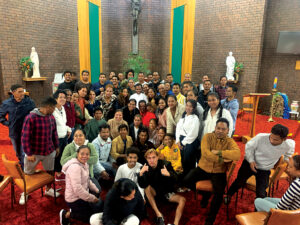
Fr Graciano with seasonal workers at Port Augusta.
In Port Augusta, he attended a gathering of about 60 workers organised by Port Pirie Diocese Vicar General Fr Jim Monaghan.
Fr Graciano said he was “very proud” to hear that the group was active in the local parish through music and other activities, as are the Timorese abattoir workers in the South East.
“I told them not to lose their faith, morals and culture,” he said.
“They can be apostles to others here.”
Advertisement
Fr Graciano also urged them to use their money to “improve their lives and support their children back home”.
With 40 per cent of Timor-Leste people living below the poverty line and the average wage between $2 and $4 a day, he said seasonal work in countries such as Australia, Korea, England and Ireland, was critical to the local economy.
“Workers outside the country send money to their families to build houses and you can see that the private houses are much better than the public buildings,” he added.
Another connection with the Adelaide Archdiocese is through Fr Graciano’s role as Judicial Vicar. While in Adelaide, he met with Tribunal director Sue Rivett to explore cooperation between the two tribunals, including sending lay staff to Adelaide for training in administration.
Fr Graciano also has a leadership role at a new Catholic university in Dili and held talks with the Australian Catholic University in Melbourne about scholarships for priests and other areas of collaboration. Despite having 240 seminarians in Dili, Fr Graciano said there were challenges for the Catholic Church due to cultural changes.
In the Dili parish of Balide where he was previously parish priest, there are 30,000 Catholics and Fr Graciano said more than 1000 people would attend each of the four Sunday Mass services.
“The faith is very strong but we need to improve because now we have many challenges, in terms of the secularity, and young people staying far from the church,” he said.
Both Fr John and Fr Graciano expressed optimism for the political situation in Timor-Leste after the recent election of independence leader Xanana Gusmao.
Fr John said the election result had been “accepted peacefully by all parties” and Gusmao had indicated he wanted oil and gas processed on Timorese land to provide more employment opportunities.
“We have high hopes he will do something for the country,” added Fr Graciano, whose journey to the priesthood was a difficult one due to the annexing of the country by Indonesia in 1975.
“I grew up in a village on the border of East and West Timor…my father was a nurse but we also had a small farm. I was 10 years old before I could go to elementary school because we had to go to the mountains to hide for four years.”
In 1981 he finally got the chance to go to school and was educated at Maliana College before joining the seminary in Flores, Indonesia.
“It was very difficult because it wasn’t clear if we could continue our studies under Indonesian control; many left their vocation because of the politics, many were involved in the clandestine movement for independence,” he recalled.
“I stayed. I wanted to choose the same way as my father and work in social services; to be a priest was one way of doing that. I wanted to help other people but in a different way.”
Ordained in his hometown of Cailaco in 2002, the year the country gained independence, his memories of the day are marred by the violence inflicted by the militia in that period.
“It was a hard time, everything was destroyed by the militia, they burnt houses, destroyed the hospital and killed people,” he said.
“I still remember people riding motorbikes to the ordination because there were no cars.”



